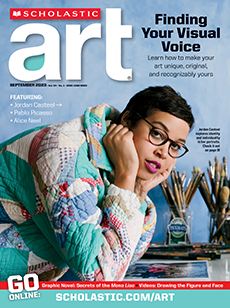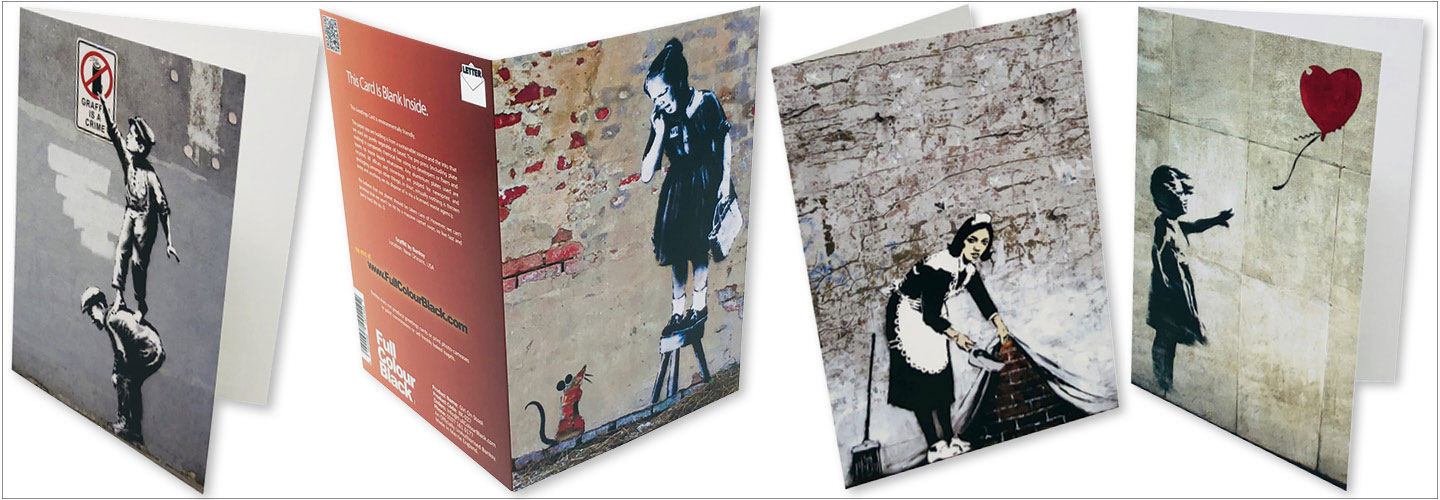Anonymous artist Banksy stencils his distinctive street art all over the world. There’s a long history of other parties profiting from the British artist’s work. People often photograph his art in public spaces or reproduce it. His work sells for hundreds of thousands of dollars in galleries and at auctions, but reproductions of his work can also be found on a variety of ordinary products, from stickers to tote bags.
Recently, a British greeting card company called Full Colour Black took legal action against Banksy. The company features photos people take of Banksy’s trademarked street art on greeting cards, but it didn’t work with the artist to obtain them. The company’s officials argue that because Banksy’s art is so widely copied, it’s legal for others to use his trademarked work. Some people claim that Banksy trademarks his work, like a brand logo, to avoid copyrighting it, which would grant him exclusive rights to reproduce and profit from his works. Unlike a copyright, a trademark allows Banksy to remain anonymous.
Banksy says he approves of people copying or reproducing his work for personal amusement, academic research, or activism. But he believes that Full Colour Black is trying to steal his brand in order to sell “fake” merchandise. In response, Banksy launched an online store called Gross Domestic Product. On this platform, the artist aims to retain his trademarks by selling his own clearly branded items featuring his work. However, Full Colour Black stands by its decision to publish images of Banksy’s public art on its products.
What do you think: Should companies have the right to reproduce public art images for profit?

